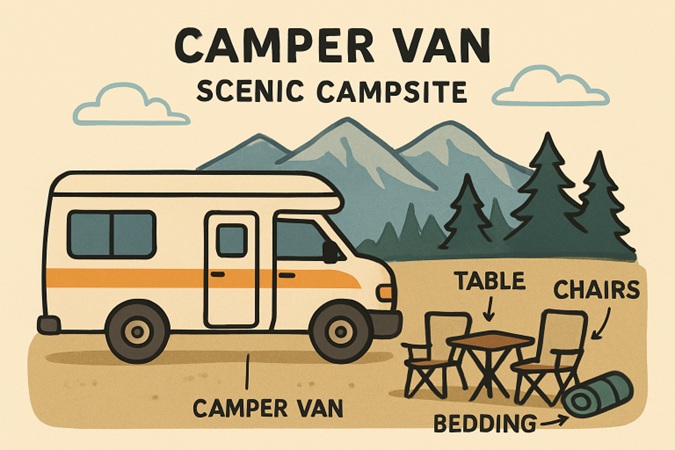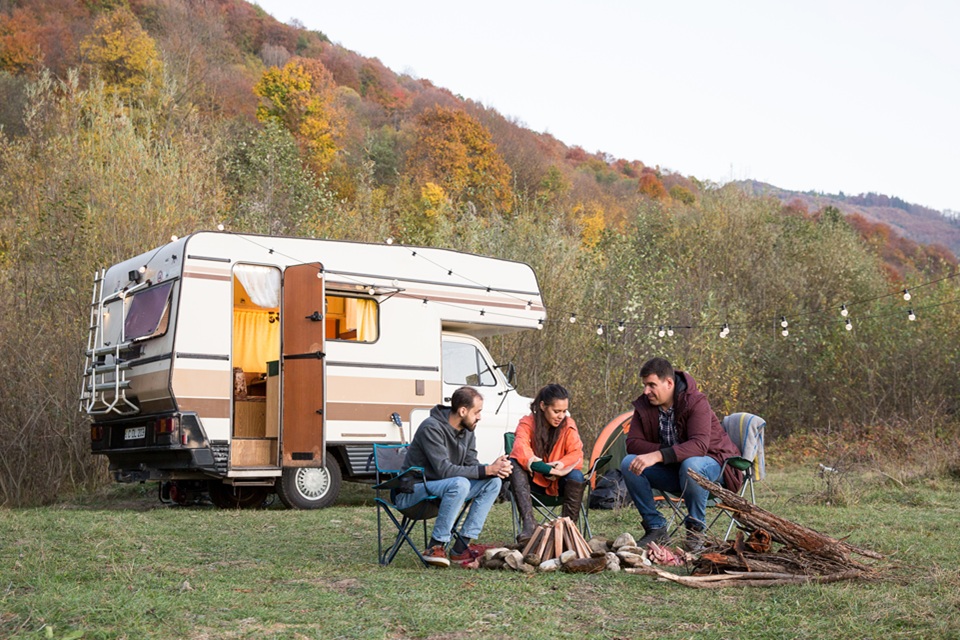Embarking on a camper van road trip is a thrilling way to experience the freedom of the road, blending adventure with the comforts of home. Whether you’re winding your way through dramatic fjords, exploring serene forested byways, or crossing vast open plains, the sense of possibility is exhilarating. Yet, thoughtful planning is what keeps such adventures memorable for the right reasons and helps avoid common pitfalls that can dampen the joy. If you’re new to camper van travel or just looking for an upgrade, there are plenty of options—including Iceland campers—that offer everything from compact models to spacious family vehicles, ensuring your travel experience is tailored, comfortable, and reliable. The key to a successful journey lies in approaching your trip with a blend of organization, resourcefulness, and an adventurous spirit that’s open to discovery at every turn.
The open road means a new vista and new opportunities every day, but with this enticing freedom comes certain responsibilities. Knowing when to book campsites can prevent a stressful last-minute scramble for a safe place to park overnight—some destinations fill quickly in peak season. Similarly, having a realistic budget will help you avoid financial surprises. Even basic decisions, such as how you’ll cook meals or handle waste, benefit from thoughtful planning. Unpredictable weather, rapidly changing road conditions, and the lure of spontaneous detours all demand flexibility, but it’s preparation that helps you adapt smoothly. This guide will cover each aspect of prep—from route planning and budgeting to safety tips and sustainable practices—so you can make the most of your adventure and focus on creating unforgettable memories with minimal stress along the way.
Route Planning
Before you hit the road, mapping your route is essential for a smooth, enjoyable journey. Planning lets you prioritize must-see attractions, avoid congested roads, and carve out time for those scenic detours everyone raves about. Consider your interests when plotting your journey—whether it’s the dramatic scenery along winding coastal roads or charming towns tucked away from main thoroughfares. Download offline maps and navigation apps so you’re prepared even in areas without cell service. Pay attention to road restrictions, especially for camper vans, as rules and regulations for vehicle size or overnight parking in national parks and rural zones may vary by region. Mark potential rest stops and sightseeing pullouts to help keep everyone refreshed and energized, and be mindful not to overextend your daily driving. A little flexibility in your itinerary allows you to linger in your favorite places or adjust the plan if you encounter unexpected closures or weather changes.
Budgeting
Understanding your travel expenses can be the difference between a relaxing holiday and unforeseen stress. Your budget should start with the major essentials: fuel, which fluctuates depending on how far you drive, your vehicle’s efficiency, and the terrain; campsite or campground fees, ranging from $20 to $50 per night or more at some parks; and groceries. Cooking meals in your vehicle rather than dining out is a proven way to save money and can nearly cut your food budget in half, so stocking up on versatile shelf-stable items and fresh produce is smart. While it is fun to indulge in a meal out now and then, plan these as occasional treats. For practical strategies to stretch your budget, U.S. News offers a helpful guide to making a road trip more affordable. Make a list of all possible expenses, including activities, parking, tolls, and park or attraction entrance fees. Do not overlook the need for an emergency fund, as mechanical issues, medical expenses, or a change in itinerary can arise when least expected. Having a financial cushion offers real peace of mind. Use budgeting apps or spreadsheets to track your spending as you go; a little awareness helps you stay within your means and enjoy more freedom during your trip.
Packing Essentials
A well-thought-out packing list is your greatest ally for a comfortable and efficient camper van adventure. Prioritize gear that serves multiple functions and helps you stay organized, such as:
- Comfortable mattresses and warm, layered bedding for restful nights in any climate
- Compact, stackable cookware and utensils designed for camper van storage
- A thoughtfully stocked repair kit including a jack, spare tire, tire gauge, jumper cables, and essential tools
- First aid supplies, prescription medications, insect repellent, and trusted hygiene products
- Portable chargers, rechargeable batteries, and power banks to keep your electronics running off the grid
Items you access frequently—like snacks, outerwear, and maps—should be easily accessible, while bulkier or less-used supplies can be stowed away. Modular bins and hanging organizers work wonders in tight quarters. Before you start driving, take a moment to ensure everything is secured—loose objects can become hazards on winding roads. Finally, keep essential documents (vehicle paperwork, licenses, insurance) in a waterproof pouch close at hand. An organization system helps you keep a small space livable and maximizes your comfort during extended journeys.

Meal Preparation
Efficient meal planning saves you time, money, and energy—crucial resources on the road. Focus on recipes using ingredients that store well and require minimal prep or cleanup, such as one-pot pasta, hearty soups, or satisfying sandwiches. Stock up on pantry basics like oats, rice, dried beans, and canned vegetables, and supplement with fresh produce from local markets—this is also a great way to sample regional flavors unique to each destination you visit. When possible, prep meals in batches or marinate ingredients in advance. Keep collapsible water containers, a compact camp stove, and a set of reusable dishes on hand to make cooking a breeze and minimize waste.
Safety Measures
Routine vehicle inspections—checking tire pressure, brake fluid, wiper blades, and engine oil—are essential for preventing breakdowns, especially in remote areas. Equip your van with a robust emergency kit: road flares, a flashlight, extra batteries, a power bank, reflective triangles, and a sturdy multitool are all must-haves. A high-visibility safety vest and thermal blanket can offer protection during emergencies in cold or low-visibility conditions. Learn basic repairs like changing a flat, jump-starting your engine, or topping up fluids; these skills can make a big difference when help is far away. Map out hospitals, auto repair shops, and fuel stops in advance, especially in sparsely populated regions. Always keep a printed list of local emergency numbers and key contacts within easy reach—cell phones and devices can run out of charge or lose signal at inopportune times. Your safety and that of your companions should always come first; being proactive helps prevent minor mishaps from spoiling your adventure.
Staying Connected
Modern technology offers countless ways to stay in touch, no matter where your travels lead. Consider a portable Wi-Fi hotspot or a local SIM card tailored to your travel region—both are invaluable for navigation, checking the weather, streaming, and sharing experiences with friends and family back home. Download offline content for your favorite music, podcasts, or audiobooks before you go—remote areas often have poor reception and unreliable internet. Apps with offline mapping or travel guides will bolster your independence; some even offer local highlights and tips submitted by fellow travelers. Test your devices and back up essential files to cloud storage in case of loss or damage on the road. Although being connected is comforting, remember to enjoy the digital detox that the great outdoors often inspires.
Entertainment Options
Your camper van isn’t just transportation; it’s a launchpad for memorable adventures. Research national parks, scenic trails, and top attractions en route. Connect with local culture by detouring to community festivals, arts events, small-town museums, or quirky roadside landmarks—such stops make your journey truly unique. If you crave outdoor excitement, plan time for hiking, biking, kayaking, or simply exploring nature on foot. These breaks not only stretch your legs but also deepen your connection to each place you visit. Board games, cards, or a travel journal can provide entertainment on rainy days or quiet evenings, helping everyone relax and recharge for the next adventure.
Sustainable Travel Practices
Adopt sustainable habits to protect the landscapes you come to explore. Pack reusable containers, utensils, and shopping bags to dramatically reduce single-use plastics. Make a commitment to leave your campsite cleaner than you found it—pick up litter, dispose of gray water responsibly, and follow local guidelines to minimize your footprint. According to National Geographic, respecting protected habitats and wildlife is essential: avoid off-trail parking, observe animals from a distance, and never feed wildlife. Use biodegradable soaps, conserve fresh water, and opt for eco-friendly toiletries. Every small action helps preserve natural wonders for future travelers and allows you to contribute positively to the places you visit. Being a responsible traveler ensures these beautiful destinations remain wild and welcoming for years to come.
Planning doesn’t just make your camper van road trip easier—it unlocks new opportunities for adventure, discovery, and personal growth. With thoughtful preparation, resourceful packing, and sustainable habits, every mile of the road ahead promises something extraordinary. Enjoy your journey—safe travels and happy exploring!
